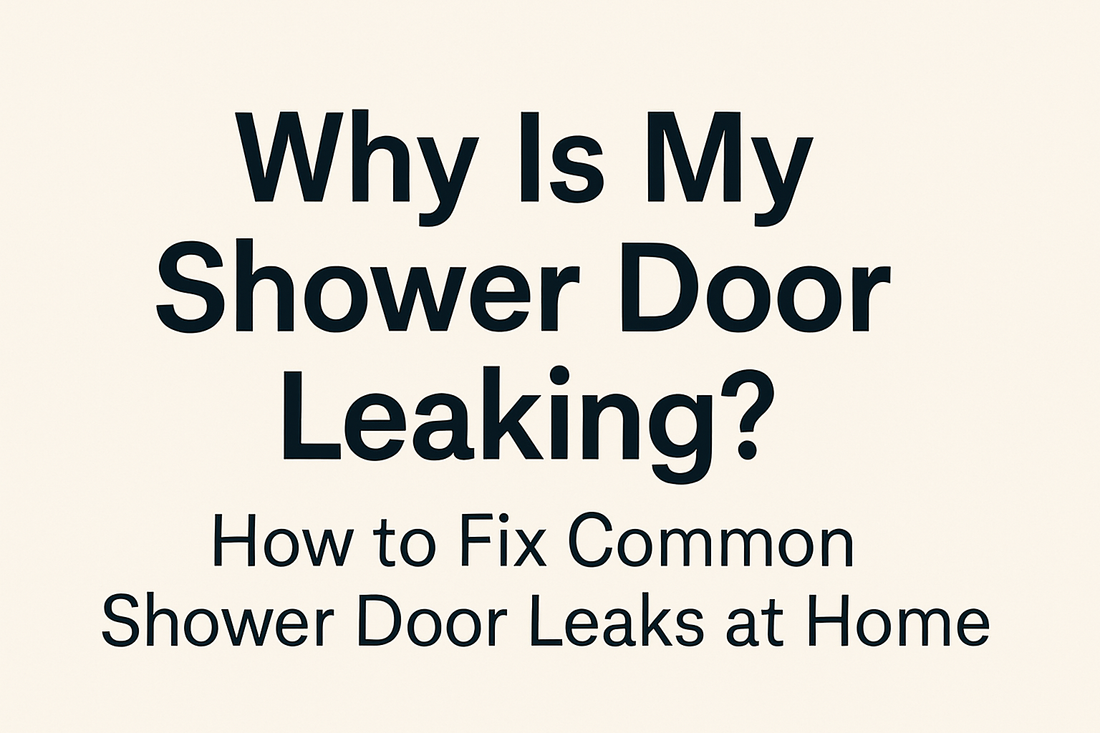
Why Is My Shower Door Leaking? How to Fix Common Shower Door Leaks at Home
Share
A leaking shower door can turn a relaxing shower into a frustrating mess. If you’ve noticed water pooling outside your tub or shower enclosure, it’s time to investigate the cause and find the right fix. This guide walks you through common reasons sliding and hinged shower doors leak and what you can do about it.
1. Check the Shower Door Alignment
One of the top causes of leakage is misaligned shower doors. Over time, hinges or rollers can loosen, causing the door to shift slightly. Even a small gap can allow water to escape.
Solution:
Check that the door is level and slides or swings smoothly. Tighten loose screws or adjust rollers as needed. For sliding doors, ensure the panels fully overlap when closed.
2. Inspect the Bottom Seal Strip
Many frameless glass shower doors rely on a bottom sweep or seal strip to block water. If this strip is damaged, missing, or improperly installed, water can leak underneath.
Solution:
Replace worn or brittle seals with a new shower door bottom seal strip. Make sure the new strip fits snugly and lies flat against the shower curb.
3. Gaps Between Glass and Wall
Improper installation or settling of your home can create small gaps between the glass and the tile wall. Even a tiny space allows water to escape.
Solution:
Use clear silicone caulk along the edge where the glass meets the wall. Let it cure for 24 hours before using the shower again. This is an easy, low-cost fix that can make a big difference.
4. Water Hitting the Door Directly
If your showerhead sprays directly onto the door seam, water pressure may push water through even small gaps.
Solution:
Reposition your showerhead so the spray flows away from the door edges. Angling the head downward can help reduce leakage risk significantly.
5. Clean Your Shower Track
For sliding shower doors, dirt and buildup in the bottom track can prevent doors from fully closing. This creates space for water to escape.
Solution:
Clean the track with a toothbrush and vinegar solution. Remove debris and check for damage or corrosion.
6. Replace Old Caulking
Old or cracked caulk around the frame or base of your shower enclosure can allow water to seep out.
Solution:
Remove the old caulking with a plastic scraper and apply a fresh, mold-resistant silicone caulk along the seams.
Final Thoughts
A leaking glass shower door doesn’t always mean you need a full replacement. In many cases, simple DIY maintenance like replacing seal strips, adjusting the frame, or re-caulking can resolve the issue quickly and affordably. Regular cleaning and inspection will also help prevent future leaks and prolong the life of your shower door system.
If you’re unsure about a repair or your door seems damaged beyond a simple fix, consult a professional installer to ensure safety and functionality.
